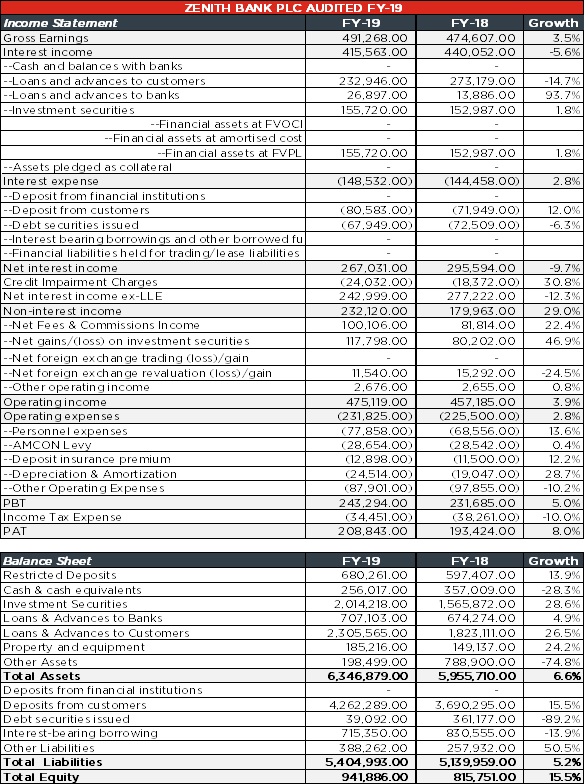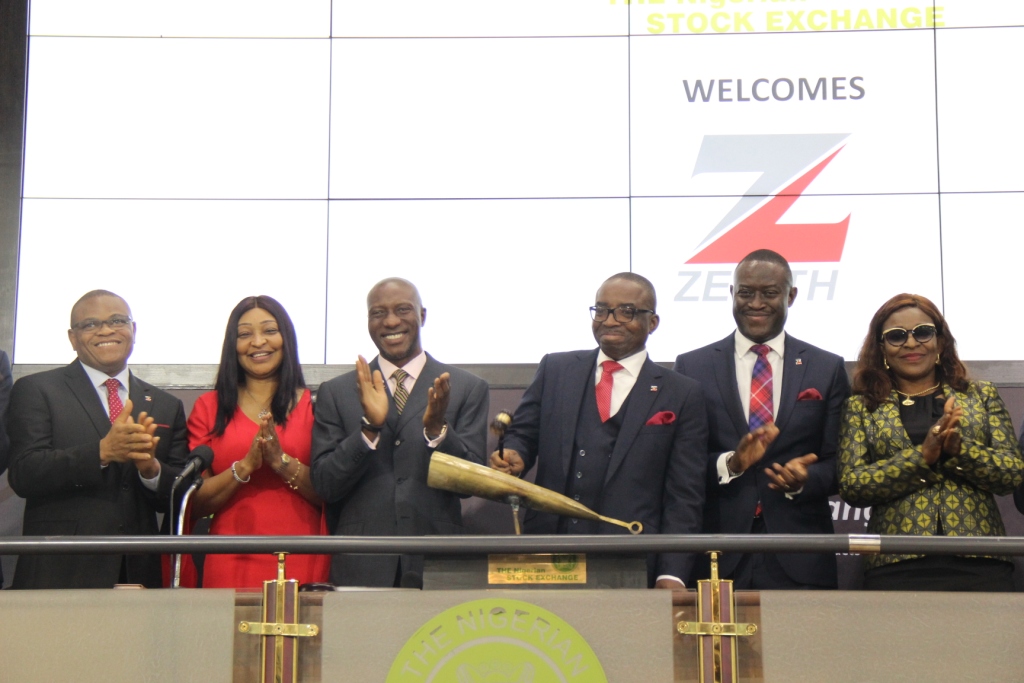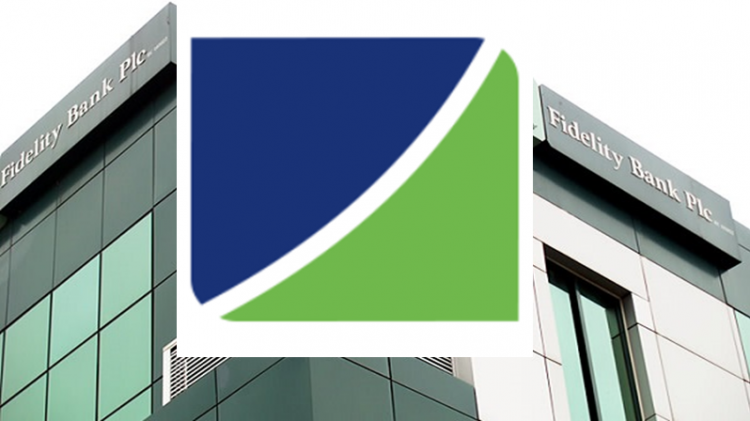Zenith Bank’s recently released audited FY-19 numbers, which were generally supported by strong non-interest income growth, also came with declined interest income within the period under review. However, due to the stronger expansion in non-interest income (NII), the bank recorded good growth in profitability. Also, the bank proposed a final dividend of NGN2.50/s, which translates to a dividend yield of 12.9%, based on the last closing price of NGN19.40 (20 February 2020).
Interest income declined by 5.6% y/y to NGN491.27 billion, depressed by weaker income from loans to customers (-14.7% y/y to NGN232.95 billion), although income from investment securities grew over the corresponding period of the prior year (+1.8% y/y to NGN155.72 billion).

However, that there was a growth in interest income from loans and advances q/q of 29.1%, reflecting the significant expansion in loans and advances (+26.5% y/y | +12.9% q/q) to NGN2.31 trillion, as the bank strived to meet the minimum LDR limit of 65.0%.
Also, interest expense grew by 2.8% y/y to NGN148.53 billion, reflecting the higher cost of deposits from customers (+12.0% to NGN80.58 billion). Similar to interest income, there was significant growth in interest expense q/q by 7.9%. Given this expansion, it is clear that the bank took on higher cost deposits.
Continuing the trend during the year, NII was strong, settling 29.0% higher y/y at NGN232.12 billion. The strong growth recorded was supported by expansions in fees and commissions income (+22.4% y/y to NGN100.11 billion) and gains on investment securities (+46.9% y/y to NGN117.80 billion). This expansion in NII, offset the decline in net interest income (9.7% y/y to NGN267.03 billion.), and led to an expansion in operating income of 3.9% y/y to NGN353.12 billion.
Besides, operating expenses growth was muted, as the bank continued to focus on cost management in the face of weak income growth. Opex grew marginally by 2.8% y/y to NGN231.83 billion, with the most pressure exerted by personnel expenses (+13.6% y/y to NGN77.86 billion), which constituted 33.6% of Opex. Consequent on the muted Opex growth relative to operating income growth, cost-to-income ratio (ex-LLE) settled lower at 48.8% relative to 49.3% in the prior year. Also, profitability was stronger, with profit-before-tax settling 5.0% higher year-on-year, while profit-after-tax settled 8.0%, on account of a 10.0% decline in income tax expense.
Business Hilights Intelligence Unit (BHIU) market assessment team notes that the improved growth in interest income quarter-on-quarter is in line with our prognosis, but avers that “Pressure on interest expense in 2020, due to the implementation of the higher CRR.”










